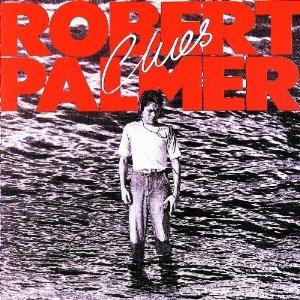 Say ‘fusion’ to most music fans and it’s the classic early-‘70s jazz/rock of Miles or The Mahavishnu Orchestra that would probably come to mind.
Say ‘fusion’ to most music fans and it’s the classic early-‘70s jazz/rock of Miles or The Mahavishnu Orchestra that would probably come to mind.
But a decade later another kind of fusion was taking place, a mainly-American sound that drew on influences from R’n’B, jazz, pop, funk, AOR and MOR.
Yacht Rock was upwardly-mobile, multi-layered, widescreen, moneyed, beautifully-produced music, usually involving a string section, Fender Rhodes and/or horns, generally West Coast-originated, driven by the lush production style of the time and effortless brilliance of the musicians involved.
The Yacht House Band generally centred around a few key members of the band Toto: Jeff Porcaro on drums, David Paich on keyboards and Steve Lukather on guitar. You’d also have to factor in guitarists Jay Graydon, Lee Ritenour and Larry Carlton, keyboard players David Foster, Michael Omartian, Robbie Buchanan and Greg Phillinganes, drummers John ‘JR’ Robinson and Steve Gadd, bassists Louis Johnson and Abe Laboriel, percussionist Paulinho Da Costa, horn arranger Jerry Hey, string arranger Johnny Mandel and a whole host more.
These were the greatest ‘rock’ musicians in the world, brought up on The Beatles, Beach Boys, Hendrix, Miles, McLaughlin and James Brown, making up their parts on the spot with the studio meter running, embellishing the basic chord changes with their own unique feel and voicings and bringing to life jazz-influenced compositions by some of the great songwriters of that or any other era: Kenny Loggins, Burt Bacharach, Michael McDonald, Carole Bayer Sager, Rod Temperton, Fagen and Becker, David Foster, Jay Graydon et al.
All kinds of singers got sucked into this vibe, dialling down the operatics and dialling up the melody and behind-the-beat phrasing: George Benson, Patti Labelle, Michael Franks, Randy Crawford, The Four Tops, Michael Jackson, Manhattan Transfer, Leon Ware, Lionel Richie.
Even a few Brits got onboard – George Michael’s ‘Careless Whisper’ and Cliff Richard’s ‘Carrie’ are great stabs at the sound.
With a few notable exceptions, it was all over by 1984. The technology started running the show. Everyone was looking for the right drum machine, budgets were slashed and the great session musicians moved into production and songwriting. Stanley Clarke/George Duke’s heroic ‘Atlanta’ was somewhat of a finale for this kind of music; it’s quite affecting in a way.
Of course this stuff is way too laidback for some, the sound of clock-watching session musicians producing aural cotton candy, too close to muzak for comfort. It would be totally understandable to reach for the Throbbing Gristle after a while. But if it’s your bag you can really get lost in it – it’s pure comfort music, and brilliant for headphones.
Here’s a selection of the finest 1980s Yacht Rock artefacts for your listening pleasure. Ahoy there mateys, and wishing you a smooth sail.
Dedicated to James Broad.

 Playwright, actor, activist and poet Harold Pinter, who died on Christmas Eve 2008, would have been 90 years old today.
Playwright, actor, activist and poet Harold Pinter, who died on Christmas Eve 2008, would have been 90 years old today. 